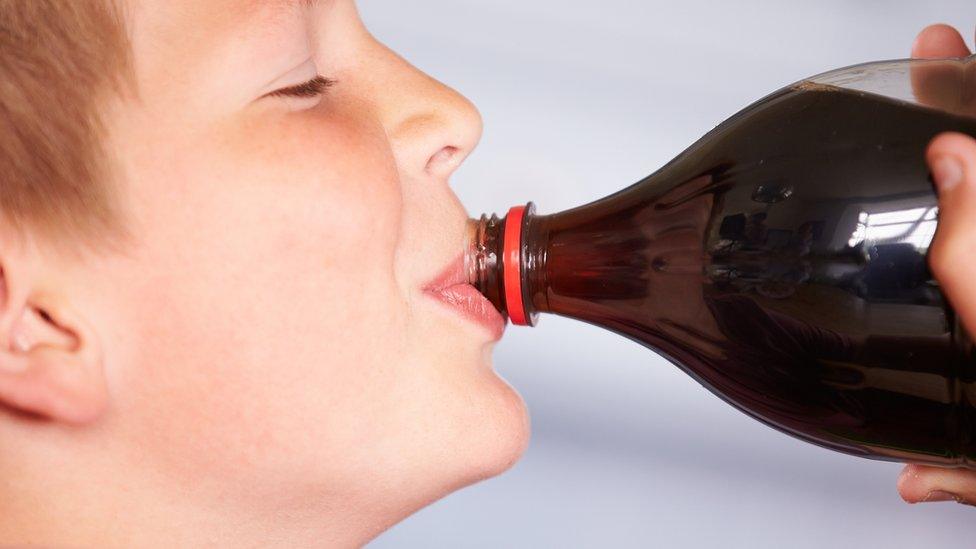Sugar tax on soft drinks raises £154m
- Published

The new sugar tax on soft drinks has raised £153.8m since it was introduced in April, the government has said.
, means the tax is on track to raise the estimated proceeds of £240m for the full year.
The new tax is applied to soft drinks with a certain amount of sugar per litre.
Health officials have warned that more action could be taken against the food industry unless it cuts sugar further.
Public Health England (PHE) says if the food industry has not made enough progress on sugar reduction it could face further measures.
PHE has been working to cut sugar and calories in everyday foods, such as breakfast cereals, yogurts, pizzas and ready meals, by 20%.
Its latest survey found 90% of the public said they supported the government working with industry to make food and drinks healthier.
But most think the responsibility for tackling obesity lies primarily with individuals themselves and families.
The clampdown on sugar use has seen certain leading brands, including Fanta, Ribena and Lucozade, cut the sugar content of their drinks.
The introduction of the levy means the UK joins a small handful of nations that have introduced similar taxes, including Mexico, France and Norway.
How does the tax work?
The levy is applied to manufacturers - whether they pass it on to consumers or not is up to them. There are 457 producers registered for the levy.
Drinks with more than 8g per 100ml face a tax rate equivalent to 24p per litre.
Those containing 5-8g of sugar per 100ml face a slightly lower rate of tax, of 18p per litre.
Pure fruit juices are exempt as they do not carry added sugar, while drinks with a high milk content are also be exempt due to their calcium content.
Originally, the Treasury forecast it would raise more than £500m a year, but that has now been reduced to £240m because some manufacturers have reduced the sugar content in their products.
In England that income is being invested in school sports and breakfast clubs.
Products such as cakes, biscuits and other foods are not covered by the tax, although a separate initiative is encouraging manufacturers to reduce the sugar content of those items voluntarily.
- Published6 April 2018